
A photo I took in college hung on my wall in Miyazaki the entire time I lived there, no matter the apartment. It became faded and curled and we when I left my window open during a typhoon. It was of a long stone path through a green thicket of bamboo with bamboo railing increasing the effect of distance, focusing it towards a mossy gate. I could remember going there in college. I could remember taking the picture. I remembered the bus stop I waited at changing to the train and I could remember the stone wall outside. I just couldn't remember where I had taken the picture. There was a time when I could but it went away. Then, the other day, it popped into my head.
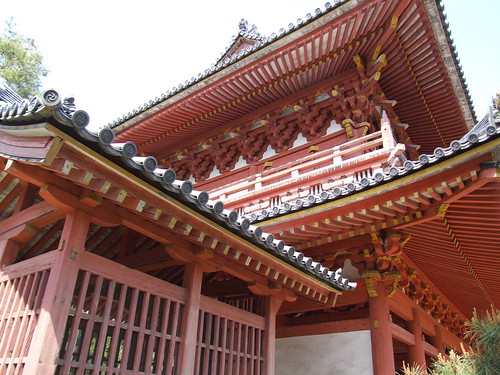
Daitokuji is a complex of temples in Kita-ku near the more famous Ginkakuji. It was the haunt of the tea master Sen-no-Rikyu who funded its rebuilding. It is also where he comitted seppuku after being commanded to by Toyotomi Hideyoshi. A statue of Rikyu had been erected on the main gate of the temple and Hideyoshi was not happy about having to walk under it.

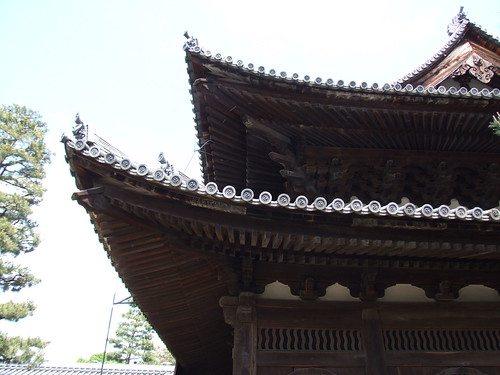
Daitokuji is a large complex filled with small subtemples. The one that haunted my memory was the Kotoin. The construction of the Kotoin is a prime example of what happens when Japan goes right. It is not that large a temple but it uses all of its space to great effect. The second gate, pictured below open onto a bamboo grove and takes a hard right turn, engulfing one in green.
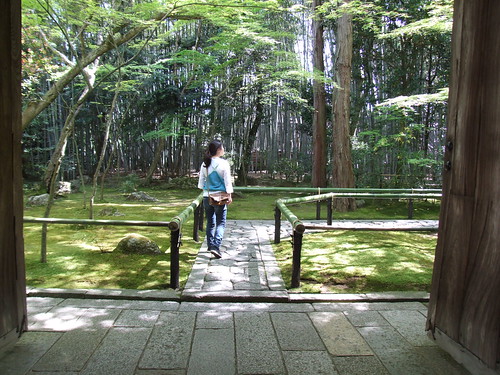
This hard turn helps construct one of the best views in Kyoto. The picture which lived on my wall.
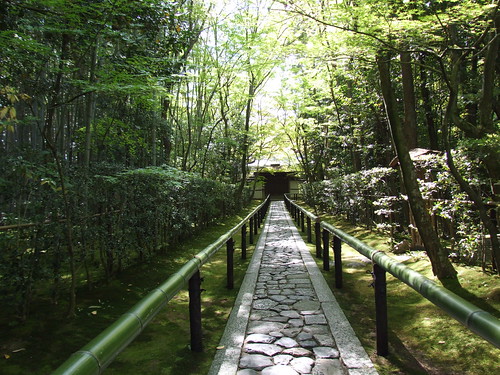
The distance is misleading. It isn't that long a walk, but everything works to stretch it out in the mind. Perfectly executed. Even the hand rail is exquisite.

The Kotoin was the territory of Rikyu's understudy Sansai who was also a powerful samurai. While in Kitaku, I would have to say that this room is a prime example of Higashiyama Bunka. Correct me if I'm wrong.

Does this hallway qualify as engawa? I think so. I am partial to it.
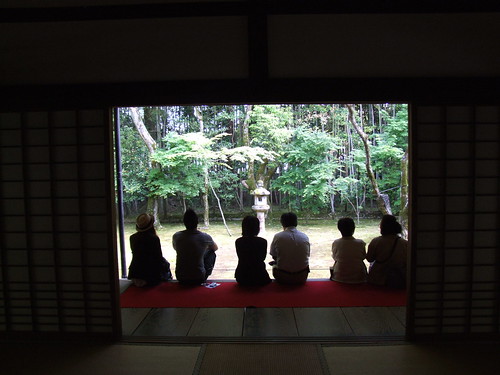
This is the garden. The stone lamp is said to be a present from Sen-no-Rikyu.
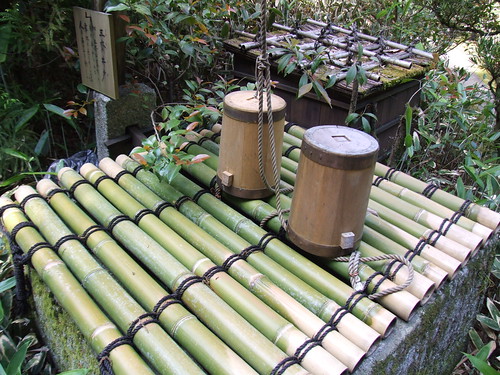
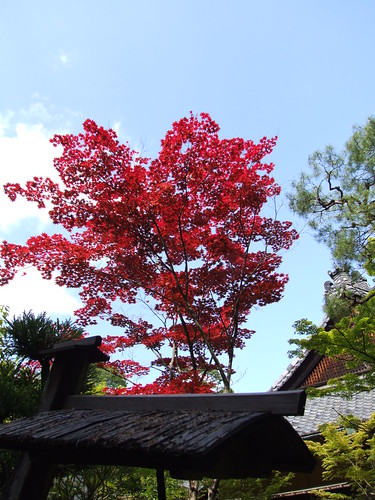 \
\The colors on this tree seemed striking, not only for being out of season.
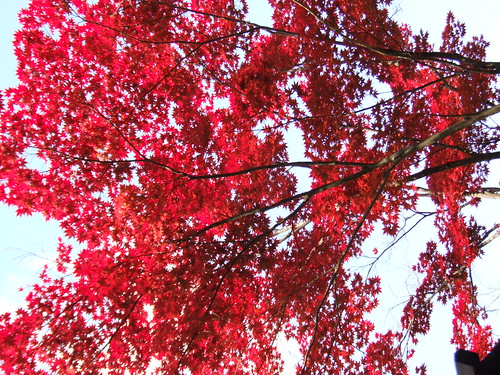
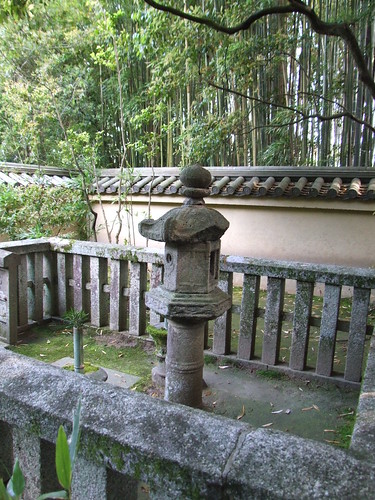
This is Sansai, and his Catholic wife Gracia.
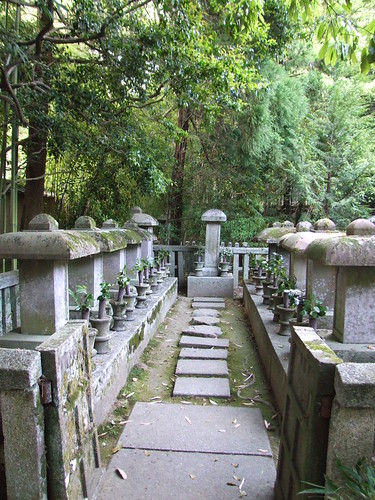
Izumo-no-Okuni, the founder of Kabuki who danced on the shoals of the Kamo river because they weren't taxed, is buried here. Her statue is the one by Shijo Ohashi, if you were wondering.
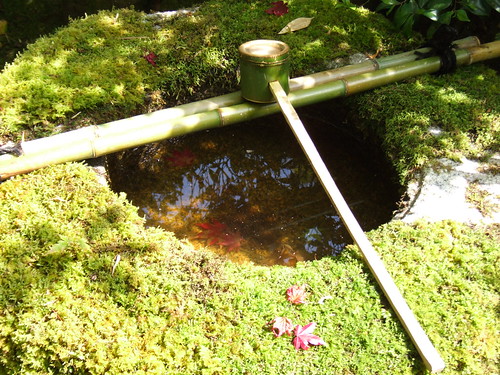
These tea ceremony basins are designed intentionally low so that the participants will have to supplicate themselves. I believe this is the stone that was supposed to have been taken from Korea.
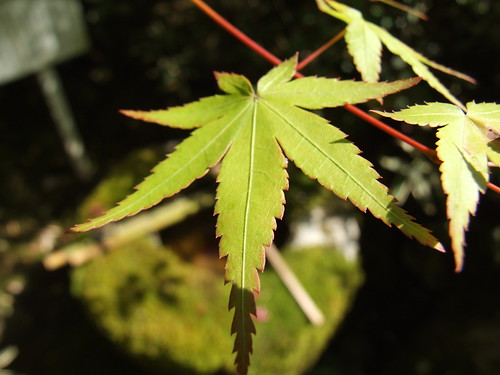
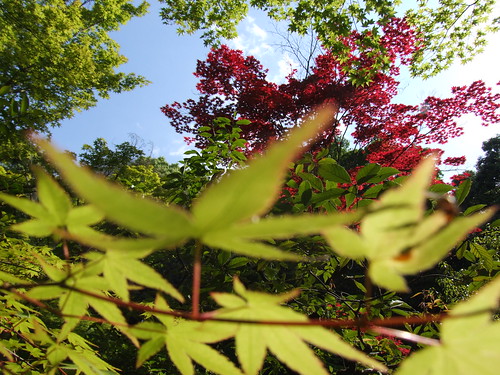
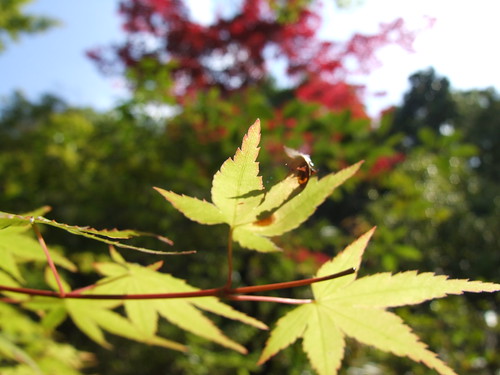
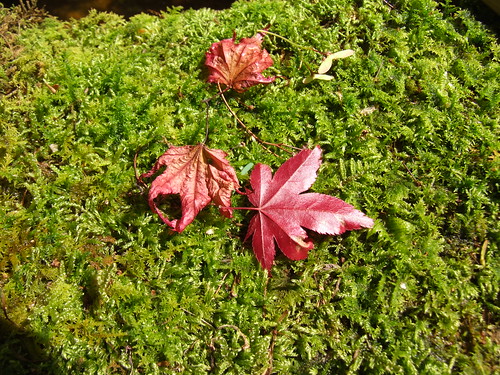
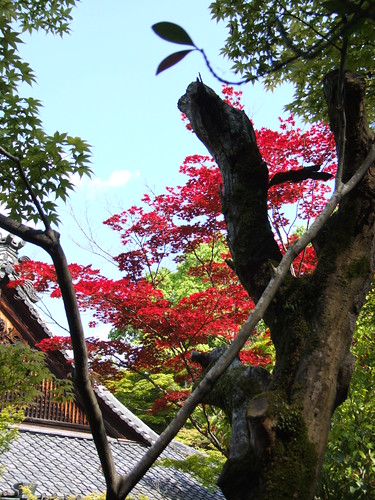
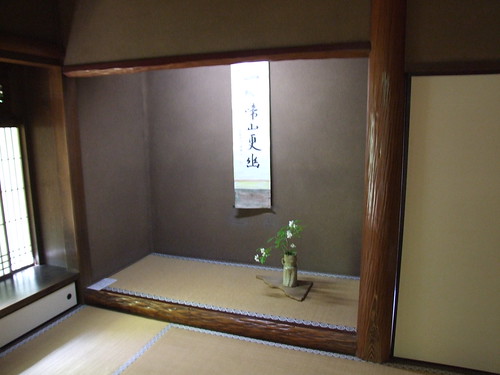
2 comments:
Nice work. Are you on a trip taking kick lately? The photographs are beautiful.
More about the author https://www.dolabuy.co view publisher site dolabuy.su Read Full Report this contact form
Post a Comment